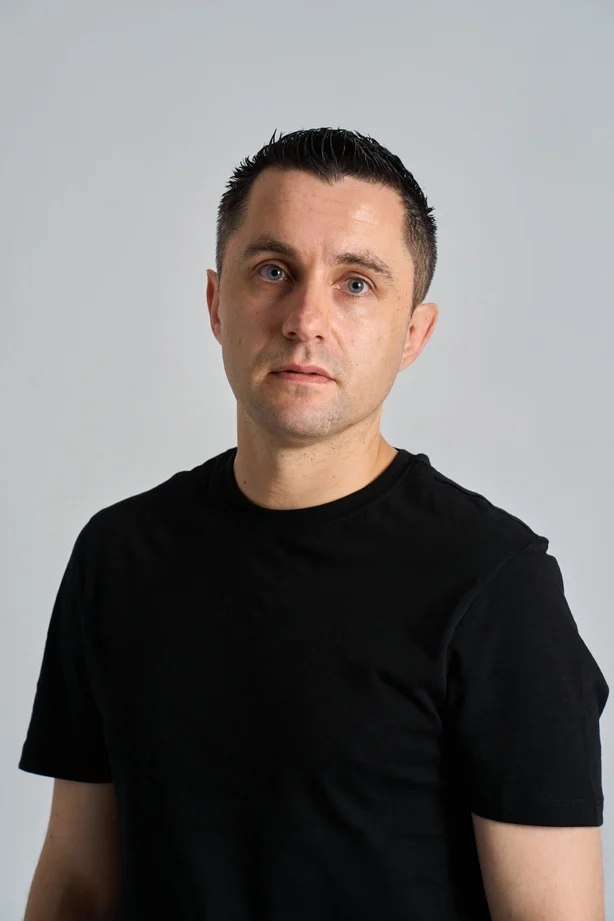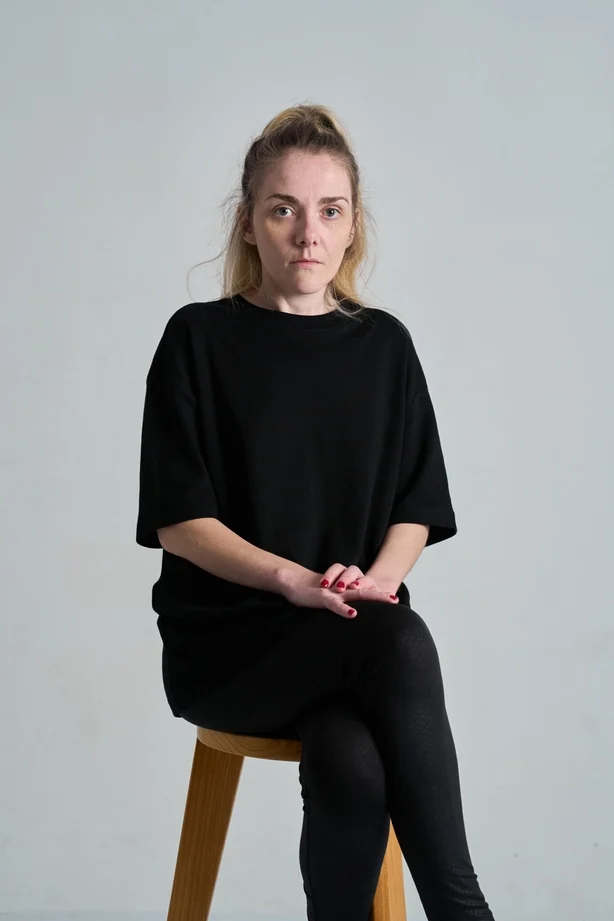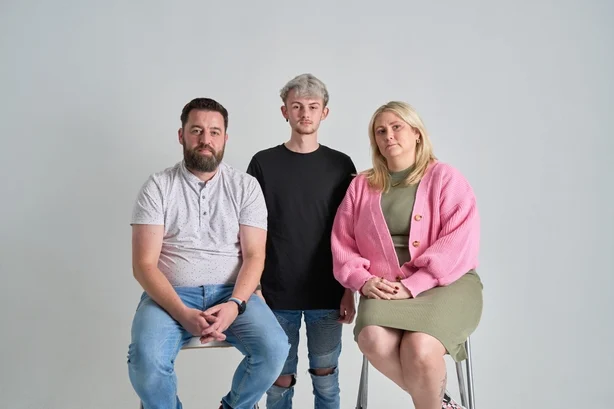For Sean, a 42-year-old father of four from Dublin, getting his wedding ring resized is a significant milestone in his journey of recovery from anorexia. Over the years of living with the disease, it eventually became too big for his fingers, and would fall off.
"But they don't know what's going on inside your head."

Sean is one of three people featured in the new documentary, which follows the lives of three individuals living with anorexia and the effect it has on them and their families.
Narrated by presenter Angela Scanlon, who herself has overcome the challenges of an eating disorder, the documentary explores the realities of what Dr. Kielty Oberlin from Bodywhys: The Eating Disorders Association of Ireland calls an "unprecedented" rise in cases in recent years.
"When one person in the family has an eating disorder, the whole family has an eating disorder", Oberlin says, highlighting the effect such a condition has on the loved ones of the person living with it.
"Anorexia would be a form of an eating disorder that would be characterised by a person restricting, so they cut out more and more of the foods that that the body needs for, for its nutritional value", she explains. "They could be so hungry all the time, but that hunger becomes the new normal and to be full is uncomfortable and terrifying."
She and Harriet Parsons, also from Bodywhys, unpack for the audience both the complexity of this illness, its causes and the struggles families face when trying to access care for their loved ones.

36-year-old Amanda and her mother Doreen share their stories in the documentary, with Amanda explaining that her eating disorder developed when she was just 14.
"When I was a teenager is when I kind of started to compare myself to other people's bodies", she says, having spoken about her years of competitive dance alongside other young girls in the previous years.
"Thinking like I want to look like them or am I bigger than them? Would have started to get probably obsessional, and it was kind of something that was grown inside my head from probably 14 maybe, and has never ever left since then."
For Sean, he notes that he's "not the stereotypical person who gets diagnosed with an eating disorder". When we meet him, he's in the early stages of his recovery following six weeks in a private inpatient clinic. He's tasked with building a routine for eating again, a process he says makes him feel like he's "fighting back".

For 16-year-old Josh from Wicklow, the journey is just starting. When we meet him, he has been admitted indefinitely to a psychiatric ward to help him gain weight, after an EKG showed strain on his heart from his weight loss.
His mother Jenny shares her fears and pain in candid video testimonials in the documentary, saying, "I just want my child to be here in the future".
Speaking about how the disease developed, Jenny explains: "Josh's eating pattern changed sooner than I twigged. Josh had endured a lot of bullying for an entire school year, endless. I think my focus was kind of there, more so than on what the food was looking like. Josh had lost so much weight, and I could see that. As soon as any of us left the room, food was thrown out."
For Josh, he says that because of his anorexia, "the fear of gaining weight is stronger than the fear of dying".
The show explores how the disease can subtly become part of a person's life before taking over, such as for Sean, who went from taking up running to exercising excessively. "It became the most important thing. Nothing was getting in the way of my running", he says.
Oberlin explains that excessive exercise can be a factor in someone's experience of anorexia, saying: "The exercise aspect has been on the rise and getting more and more ingrained over the last decade."
Amanda, Sean and Josh show three very distinct and different experiences of anorexia, at different ages. What the experts make clear is that despite the disease being an incredibly serious and fatal one, it can be overcome with the right treatment.
"Recovery is possible", Parsons says. "Our bodies are amazing. It's built to keep going so the body can restore."
For more information visit Bodywhys.ie, phone their helpline on 1890 200 444 or email [email protected].



